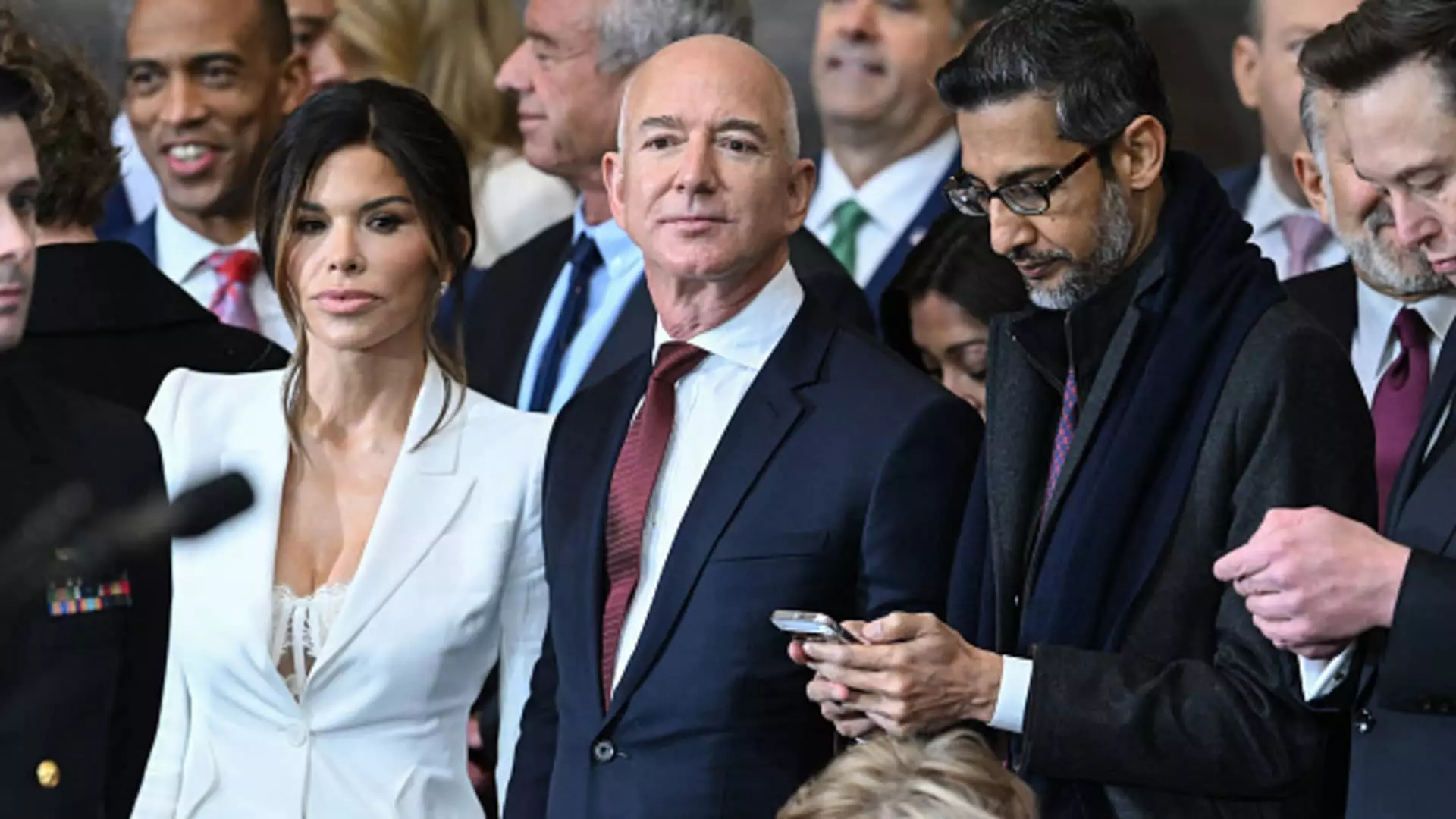In a notable shift that has sparked considerable debate, Jeff Bezos, founder of Amazon and owner of the Washington Post, announced on Wednesday that the opinion pages of the newspaper would focus exclusively on supporting “personal liberties and free markets.” This declaration signals a departure from the traditionally diverse editorial policy that allowed for a wide range of viewpoints. Rather than fostering robust debate, the Post will now dismiss dissenting opinions, prompting responses from across the political spectrum and raising questions about journalistic integrity and editorial independence.
In a message to his staff that he shared publicly, Bezos articulated his reasoning behind the decision. He feels that the role of a major newspaper has evolved, suggesting that the vast landscape of the internet now fulfills the responsibility of presenting diverse views. By constraining the Post’s opinion section to a narrower ideological framework, he posits that the publication will better serve its readers. Bezos’s commitment to ideas he perceives as underrepresented in contemporary discourse reflects a business strategy rooted in catering to specific audience preferences rather than an expansive journalistic mission.
Bezos’s assertion that the Post’s editorial decisions are in line with promoting free markets and personal liberties has, however, been met with skepticism. Critics lament the potential silencing of dissent, arguing that a healthy democracy thrives on the exchange of conflicting ideas. While Bezos praised the new direction as an opportunity to fill a perceived void in the market of ideas, many see it as a troubling pivot away from journalistic responsibility and integrity.
The announcement of this new editorial policy led to immediate ramifications within the Post itself, most notably the resignation of editorial page editor David Shipley, who had been with the publication for over two years. Bezos shared that he had suggested Shipley’s decision was a pivotal one: if he was not enthusiastically on board with the new direction, it was best for him to step aside. This refusal to conform to an imposed ideological standard has prompted not only Shipley’s departure but has also triggered a wave of resignations and vocal dissent among current and former staffers.
Prominent figures such as former editor Marty Baron publicly expressed their disgust at Bezos’s move, indicating a deep division over the future of editorial policy at the Post. Artist Ann Telnaes and columnist Jennifer Rubin have also resigned, criticizing the newly enforced constraints on political expression. This unrest within the staff highlights a broader concern about the implications of Bezos’s directive, suggesting that the Post’s commitment to balanced journalism may be compromised.
The decision has fueled speculation that Bezos might be attempting to court political favor, particularly from the Trump administration, which has often labeled the Washington Post as “fake news.” Strikingly, the Post chose not to endorse either candidate for the upcoming presidential election—breaking a historical precedent—and while some have praised this as a step toward neutrality, it has also attracted backlash, including significant subscription cancellations from those opposed to the new direction.
In the wake of these changes, reports indicate that around 250,000 readers canceled their subscriptions—a significant figure that highlights the fractures emerging between the publication and its audience. The expectation that Power and influence can dictate the nature of journalism raises ethical questions, particularly when a single individual can drastically alter the course of an established institution.
While influencers in the media business meddling in editorial stances is not new—Rupert Murdoch’s conservative shift at the New York Post serves as a well-documented example—Bezos’s specific directive to exclude contrary opinions sets a concerning precedent for editorial homogenization. His actions starkly contrast with previous claims of upholding journalistic independence, especially considering Bezos’s own status as a powerful figure within the tech and media landscape.
Importantly, beyond the immediate fallout at the Washington Post, this shift necessitates a serious discourse on the role of media moguls in shaping public thought. The feedback from journalists suggests a divide between editorial freedom and corporate influence, urging a reconsideration of the ethical standards that govern journalism in an era marked by extreme partisanship.
As this debate continues to unfold, it will be essential for journalists, editors, and the public to critically evaluate the implications of Bezos’s decision on the future of journalism. The loyalty of readers, the independence of the press, and the integrity of American democracy hang in a delicate balance. Whether this shift marks a temporary aberration or a permanent change in the landscape of media will depend on the willingness of journalists to uphold principles of diversity and engaging dialogue in their reporting. The Washington Post now finds itself at a crossroads—a reflection of the broader struggle facing media institutions in an increasingly polarized society.

